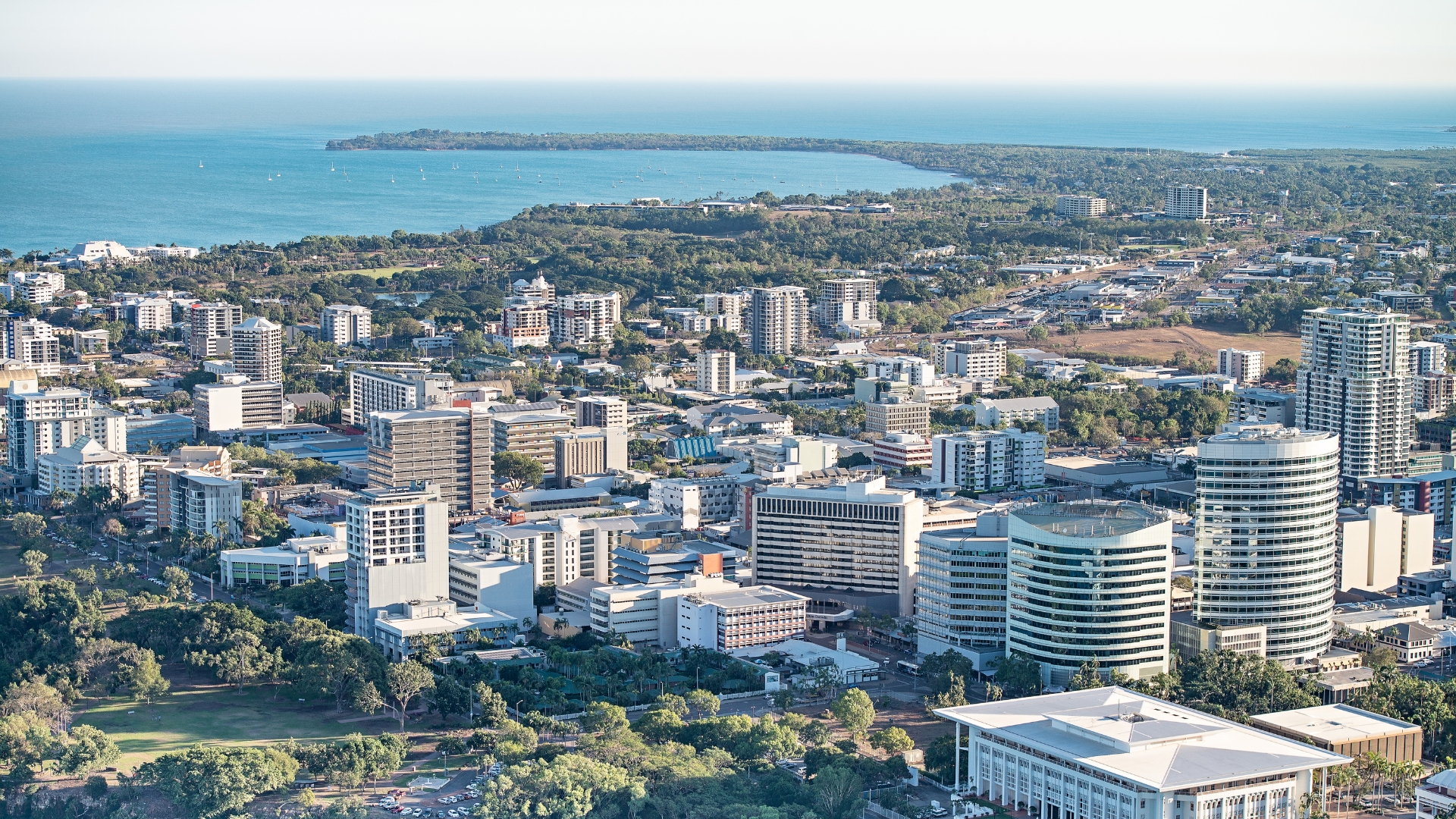- Pakistan, Afghanistan agree to continue ceasefire RADIO PAKISTAN
- Pakistan and Afghanistan agree to maintain truce for another week: Turkiye Al Jazeera
- ‘Ray of light’ seen in Istanbul talks between Pakistan and Afghanistan: Khawaja Asif Dawn
Blog
-
Pakistan, Afghanistan agree to continue ceasefire – RADIO PAKISTAN
-

LE SSERAFIM Dazzles at NVIDIA Finale, CEO Hails as 'Great Performer' – 조선일보
- LE SSERAFIM Dazzles at NVIDIA Finale, CEO Hails as ‘Great Performer’ 조선일보
- Krafton and Nvidia Unveil “PUBG Ally” to Revolutionize Gameplay with AI 아시아경제
- Girl group Le Seraphim appeared with the introduction of global company CEO…
Continue Reading
-

Iran condemns Trump’s call to resume US nuclear testing | Donald Trump News
Tehran rebukes US plans for nuclear tests, citing hypocrisy over peaceful nuclear programme accusations.
Iranian Foreign Minister Abbas Araghchi has condemned calls by United States President Donald Trump for the Pentagon to resume nuclear weapons…
Continue Reading
-

Prevent Blindness Offers New Resources as Part of November’s Diabetes Related Eye Disease Month
CHICAGO—Prevent Blindness, a nonprofit eye health organization, has announced it is offering new resources to the public as part of its Diabetes Related Eye Disease Month in November. According to the study titled
Continue Reading
-

Australian influencer family move to UK to avoid social media ban
 YouTube Empire Family
YouTube Empire FamilyBeck and Bec Lea are moving their family to the UK due to Australia’s upcoming social media ban for under-16s An Australian family with millions of online fans are relocating to the UK to avoid their home country’s social…
Continue Reading
-

China’s factory activity contracts for seventh straight month
Stay informed with free updates
Simply sign up to the Chinese economy myFT Digest — delivered directly to your inbox.
China’s factory activity declined for the seventh month in a row in October on weak domestic demand, complicating the economic outlook for policymakers in Beijing as they grapple with a trade war with the US.
The purchasing managers’ index fell to 49 this month, according to the official data released on Friday, missing the average forecast from analysts surveyed by Bloomberg of 49.6 and trailing September’s figure of 49.8. A reading below 50 represents a contraction in activity.
The results were driven by seasonal factors, such as a weeklong public holiday at the beginning of the month, as well as “a more complex international environment”, said Huo Lihui, chief statistician of the service industry survey centre of the National Bureau of Statistics.
The softer activity comes as China has pledged to step up high-tech manufacturing and increase “self reliance” in science and industry as it pursues a deepening rivalry with the US for economic supremacy.
President Xi Jinping and US President Donald Trump on Thursday agreed to a ceasefire in their trade war at a summit in South Korea, suspending export controls, port fees and some tariff. But analysts believe that the truce will be difficult to maintain given the countries’ deep differences.
China has relied on manufacturing and exports to deliver economic growth in the face of a slowdown in the property market that has undermined household confidence and spending.
Despite the slowdown reflected by the PMI data, which is in its longest continuous decline in more than nine years, activity in high-tech and equipment manufacturing — two sectors prioritised by Beijing’s industrial policies — expanded this month, the National Bureau of Statistics said.
Consumer-related sectors also grew. Beijing has promoted extensive subsidies for consumers in a push to boost domestic demand.
The statistics bureau said the non-manufacturing PMI, which includes construction and services, rose 0.1 percentage points in October to 50.1, indicating an expansion.
This was supported by sectors such as railway and air transportation, accommodation, culture, sports and entertainment. The country had an eight-day national holiday this year starting on October 1 that included the mid-autumn festival, traditionally a period of peak travel and spending.
China’s exports have proved resilient during the trade war, expanding 8.3 per cent in September on a year earlier. But authorities have become increasingly concerned that aggressive competition among producers is driving deflation by pushing down prices.
Policymakers have begun intervening in industries such as electric vehicles and solar panels to try to reduce predatory pricing, but economists worry that doing so could also deal a blow to activity.
The statistics office said new orders in manufacturing, raw materials inventories and the factories employment index declined in October, pointing to depressed activity.
“The official PMIs suggest that China’s economy lost some momentum” in October, said Capital Economics in a note. “Some of this weakness may reverse in the near term, but any boost to exports from the latest US-China trade ‘deal’ is likely to be modest and wider headwinds to growth will persist.”
Continue Reading
-

TD Joins MIT Media Lab to Explore the Future of Responsible AI in Financial Services — MIT Media Lab
TD joins as founding member of sAIpien to explore how AI can responsibly transform financial services at scale.
At the MIT Media Lab, we believe technology should serve humanity—ethically, inclusively, and imaginatively. That’s why we’re excited to welcome TD Bank Group as a new member of the Lab and a founding collaborator in sAIpien, our Scalable AI program for the Intelligent Evolution of Networks.
This initiative brings together a cross-sector community to advance research in artificial intelligence with a focus on trust, transparency, responsible data governance, and human-AI collaboration. TD joins as the financial services sector’s founding voice in the program, engaging with researchers to explore how AI might reimagine banking experiences in the decade ahead.
This reflects our ongoing commitment to and investment in AI and generative technologies.
“This reflects our ongoing commitment to and investment in AI and generative technologies,” said Luke Gee, Chief Analytics & AI Officer at TD. “We’re proud to engage actively with MIT’s best and brightest minds to test emerging models, action bold ideas, and help define how responsible, human-centric AI could help transform the future of banking.”
TD’s membership supports research into scalable, inclusive AI systems and will contribute to initiatives focused on AI talent development and future applications of emerging technologies.
“We’re thrilled to welcome TD,” said Hossein Rahnama, Visiting Professor and head of the sAIpien program.
Financial services is a critical domain where AI can make a meaningful difference.
“TD’s insights will help shape technologies and frameworks that aim to improve people’s lives and experiences.”
Continue Reading
-

Cutting energy bills in Darwin
Households in Darwin spend more on electricity than most homes in Australia, but adoption of a range of home upgrades could see their bills slashed by almost 90%.
Electricity bills in the Northern Territory (NT) are already among the highest in the country, and they are set to rise further. In its 2025 Budget, the NT government announced regulated prices will climb by 3% in 2025-26. However, recent research by the Institute for Energy Economics & Financial Analysis (IEEFA) shows that Darwin households could dramatically reduce their bills by adding rooftop solar and battery storage, and upgrading to more efficient electric appliances.
These upgrades would also have wider benefits for the Darwin-Katherine electricity grid, helping to stabilise demand and reduce the need for costly grid-scale investment. In addition, the switch to renewable energy sources would reduce the NT’s greenhouse gas emissions.
Darwin stands out nationally for its high household electricity use. The tropical climate drives significant cooling needs: around half of a typical household’s electricity demand is for cooling alone. Hot water accounts for another 17%, while cooking, lighting and other appliances make up the rest.
The high consumption means bills are usually quite high. A typical Darwin home spends around $3,500 per year on power, much of it going towards cooling. While NT households enjoy relatively low daily supply charges and similar volumetric charges compared with other jurisdictions, their high overall power use means bills remain substantial.
However there are major opportunities to reduce household energy bills.
By switching existing appliances to efficient electric alternatives, including heat pump hot water systems rather than resistive electric hot water systems, our modelling found a typical household could save around $400 a year. This bill reduction mostly arises from the fact that heat pump hot water systems use around one third of the energy that resistive electric equivalents do.
Further savings are made by adding rooftop solar. Our modelling found an 8-kilowatt (kW) system could typically reduce bills by roughly $2,100 annually. This arises from the household’s reduced reliance on grid electricity and the income it receives from exporting solar energy to the grid.
Adding a 10-kilowatt-hour (kWh) battery to this system creates further bill reductions of approximately $600. This arises because the household is able to consume more of its solar energy after dark, slashing its overnight demand for grid electricity.
All these upgrades combined – solar, storage and efficient appliances – brings the final bill down to around $370 per year, a staggering 89% reduction.
So what is the catch? Why aren’t all households doing this right now?
Well, the upgrades do require significant upfront investment. However, the payback periods are compelling – meaning the upgrades are worthwhile.
A heat pump hot water system plus induction cooktop costs around $2,200 after federal government rebates for the hot water system are accounted for, and pays for itself in about 5.4 years (or 6.7 years without rebates).
Data from SolarChoice suggests that an 8kW rooftop solar system costs roughly $11,000 after rebates in Darwin – more expensive than in other capital cities – but it still pays for itself in just over five years (6.6 years before rebates). If a 10kWh battery (about $6,700 after federal government rebates) is packaged with the solar system, this brings the total payback to 6.3 years, within the battery’s 13-year expected lifetime.
Altogether, a household investing in all these upgrades could achieve near-elimination of its annual power bill – its bills would be just 11% of their starting point before any upgrades.
The savings for an individual household are huge. However, the benefits of these household energy upgrades extend beyond individual households.
Solar, storage and efficient appliances reduce electricity demand at peak times, easing pressure on the grid.
The typical Darwin household we modelled had a peak demand of about 2.5kW on an average day in January, occurring at around 6pm. Switching to more efficient appliances (and setting the new heat pump hot water system to run in the middle of the day) brought this down slightly, to 2.3kW. Rooftop solar reduces peaks further to around 2kW, since rooftop solar still generates significant power into the afternoon/evening peak. When a battery is added, evening peaks on an average day effectively disappear.
This pattern is reasonably consistent across the year thanks to the consistency of a typical Darwin household’s power demand and Darwin’s strong solar resource. 8kW of rooftop solar consistently produces more than enough energy to charge the 10kWh battery fully, and household demand is usually high enough to deplete it. That means no evening imports are typically required from the grid and little surplus remains for export.
However with a larger battery, which is increasingly common in Australia, there could be export potential in the evenings. With the NT introducing a feed-in tariff of 18.66 cents per kWh for regulated households and businesses that export electricity to the grid between 3pm and 9pm, households with large batteries could make financial gains from exporting back to the grid in the evening.
Peak demand reductions arising from solar and storage have major implications for system planning in the NT. It can reduce pressure on networks and large-scale generation resources, and reduce some costs associated with those.
Household batteries can also help soak up solar generation during the day, lifting minimum demand and stabilising the system.
There is also significant untapped potential in improving the thermal efficiency of NT housing. Poor insulation and building design mean many Darwin households use more energy for cooling than necessary. We found that the difference between a 2-star and 7-star home (under the Nationwide House Energy Rating Scheme) was a 26% reduction in energy bills and 30% reduction in peak demand.
Better housing design and thermal efficiency upgrades could provide bill relief for the largest component of household energy use in Darwin, air conditioning, while easing pressure on the grid.
Improving building standards could be a key lever to enable this. The NT is lagging behind other states in building standards – while most jurisdictions now require 7-star efficiency for new builds, the NT only requires ratings of 5 stars for houses and 3.5 stars for apartments.
While there is significant opportunity for Darwin households to reduce their bills, many households cannot undertake these upgrades due to upfront cost barriers. Others in rented dwellings are unable to make decisions around home upgrades. Targeted measures would be required to support these households to access these benefits. Improved appliance and building standards would also help these households.
While our study was focused on Darwin, other areas of the NT could similarly benefit from these household energy upgrades. While the mix of climate drivers and demand patterns differs across regions, our modelling found that the total savings potential from upgrades is surprisingly consistent nationwide.
Darwin households face high electricity needs and rising bills, but solutions are at hand. Efficient electric appliances, rooftop solar and batteries could cut bills by nearly 90%, while also reducing peak demand and supporting the grid.
Expanding financial support for household energy upgrades and improving building and appliance standards could support households in undertaking these upgrades. This would reduce bills, reduce emissions, and strengthen the resilience of the Territory’s energy system.
Continue Reading
-

A showgirl since 2006, Taylor Swift’s music uprise and downfalls
After nearly two decades in the industry and 12 original albums, the eras of Taylor Swift have been ever-changing phenomena that continue to captivate fans.
Having sold over 10…
Continue Reading
-

Why Gen Z prefer to buy their Chanel bags on Instagram
There’s not much that Gab Waller can’t find when it comes to fashion. Just ask Rosie Huntington-Whiteley, who contacted the Australian fashion sourcer via Instagram to help her track down a sold-out Celine coat: the Sticky Toffee Pudding…
Continue Reading